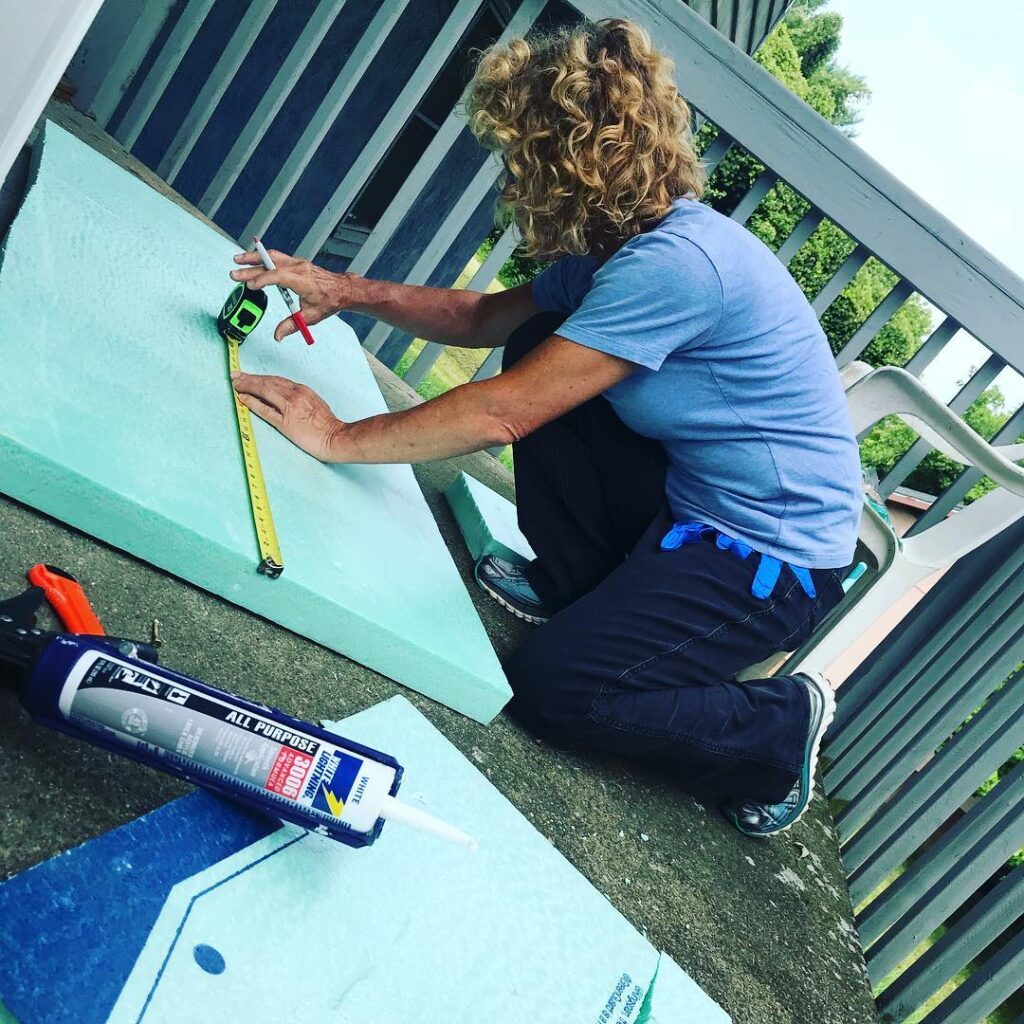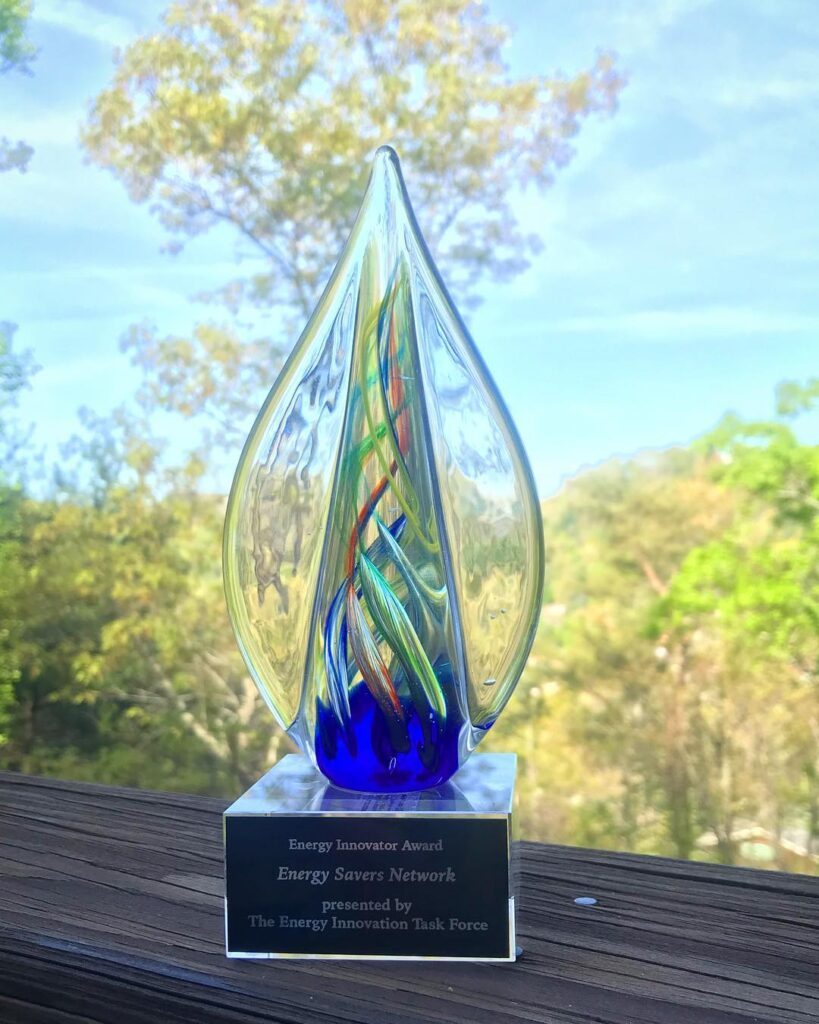Cari Barcas
In a single year since its launch, the local Blue Horizons Project energy-efficiency campaign has improved the lives of hundreds of area residents by helping to make their homes more affordable, durable and healthy.
These efforts go hand in hand with the Blue Horizons Project’s goals of reducing the area’s peak energy demand and creating the region’s clean-energy future. The Blue Horizons project was launched in the spring of 2018 as the brainchild of the Energy Innovation Task Force community collaborative.
In collaboration with other local organizations, the efforts of the Blue Horizons Project and its Energy Savers Network program have measurably increased quality of life and decreased monthly energy bills for the homes of more than 300 low-income families in Buncombe County.

Operating under the umbrella of the Blue Horizons Project, Energy Savers Network helps people and the climate by working with volunteers to serve community members with the most need and least access to energy efficiency. The program helps connect low-income families with a variety of available services to offer extensive energy-efficiency upgrades to their homes.
“While the program also seeks to educate families on free and affordable ways to reduce their home’s heating expense, meaningful efficiency improvements can require substantial expense that families struggle to afford while they are facing high heating bills,” explains Program Manager Jonathan Gach. “The program gets to help income-qualified families with a variety of improvements ranging from new energy-efficient light bulbs to insulation and air sealing, and even new heating and cooling systems. Receiving these services can improve a family’s quality of life for years to come.”

Blue Horizons Project collaborates closely with other organizations including Mountain Housing Opportunities’ Emergency Home Repair Program, Community Action Opportunities’ Weatherization Assistance Program, Eblen Charities’ Heating Assistance Program and Duke Energy’s Helping Home Fund to have the maximum beneficial impact on as many local homes as possible. Income-qualified families receiving support are identified primarily through referrals by local nonprofits as well as area churches.
Gach said many clients need support performing relatively inexpensive repairs and simple maintenance, which can significantly improve their ability to keep their home warm and reduce their energy usage.
“Without the means to make the repairs themselves, many families turn to relying on expensive electric space heaters to keep warm,” Gach says. “These inefficient electric space heaters, which are basically oversized hair dryers, can quickly push power bills into the hundreds of dollars. This common scenario becomes a financial trap for so many people in our community.”
In another pivotal early success, the Blue Horizons Project has also been credited with playing a key role in influencing Duke Energy’s decision to take off the table plans to build a natural gas peaker plant—one of the core concerns that prompted the formation of the Energy Innovation Task Force in early 2016.

In postponing construction plans for a natural gas peaker plant from 2023 to 2027, Duke attributed that decision in late 2017 to the success of the Energy Innovation Task Force, whose work laid the groundwork for the Blue Horizons Project. Since the launch of the Blue Horizons Project, Duke took it a step further and removed the peaker plant from its plans completely in its latest filing with state regulators.
Energy Savers Network continues to hold ambitious goals for the future, with plans to serve another 100 or more clients by the end of 2019. It will continue to grow its collaboration with partner programs and improving its ability to bring community resources for health and safety needs closer to home for local families in need.
Cari Barcas is community engagement director at Green Built Alliance. She has more than a decade of experience in communications and nonprofit management, including time reporting on the green-building scene in Chicago as a journalist covering residential and commercial real estate. Connect with Cari at cari@greenbuilt.org.
You can also view this article as it was originally published on pages 50-51 in the 2019-2020 edition of the directory.

